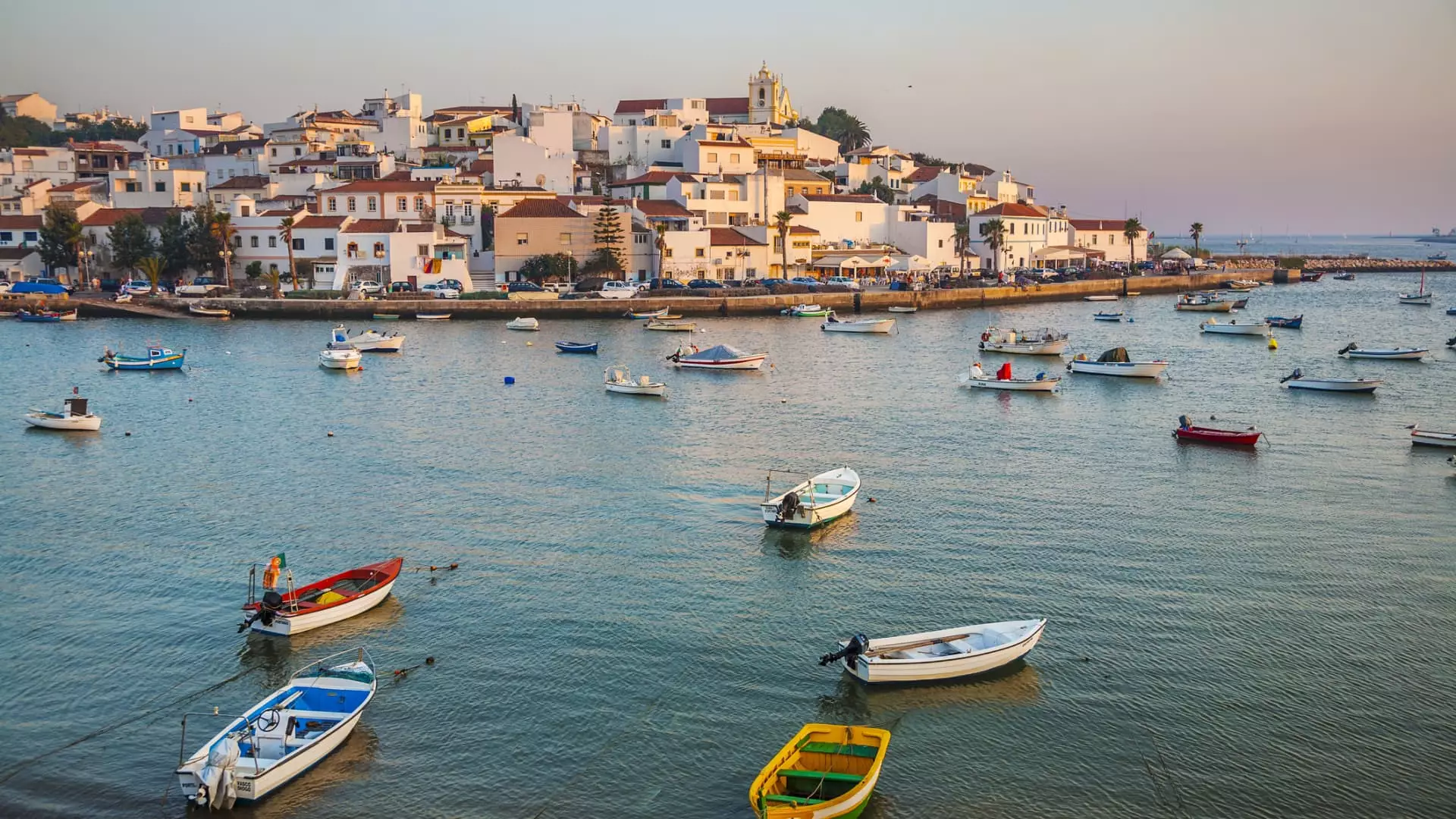As the political landscape in the United States becomes increasingly polarized, a noticeable trend is emerging among affluent Americans: the desire to seek refuge abroad. With anxieties surrounding the upcoming elections, many wealthy individuals are contemplating their options for second citizenships or long-term residency in foreign nations. Immigration attorneys report an unprecedented surge in inquiries and applications from wealthy clients, suggesting that political uncertainty is taking a significant toll on the mindset of high-net-worth individuals.
Dominic Volek, a prominent figure in international migration consultancy, has noted that the demand for citizenship and residency options has skyrocketed, indicating that many affluent Americans now view a Plan B as a necessity rather than an option. The statistics are stark, highlighting that approximately 20% of their clientele are now American, a notable increase from previous years. This shift demonstrates how the current political climate has pushed individuals into urgent decision-making about their long-term plans.
Interestingly, the inclination to relocate appears to be especially pronounced among younger millionaires, with surveys revealing that those aged 18 to 29 exhibit heightened interest in options like “golden visas.” This demographic is not just concerned about political stability; they are also navigating a complex landscape of economic opportunities and lifestyle preferences that could enhance their quality of life abroad.
The increasing participation of younger individuals in this migration trend reflects a broader cultural change where the concept of citizenship and residency is being redefined. For many, the stability and comfort traditionally associated with a permanent residence in the U.S. are no longer guarantees against economic instability or social unrest. This generational shift signifies a move towards a mindset of global citizenship, wherein individuals are willing to invest significantly to safeguard their future.
Beyond the allure of warm climates and cheaper living costs, the current political environment in the U.S. plays a pivotal role in driving this migration. The complexities surrounding taxation policies and potential unrest have made the prospect of leaving more appealing. For some, the fear of living in a politically charged atmosphere is enough to motivate them to seek out new realities in other nations.
Recent discussions regarding taxation on unrealized capital gains have further ignited fears among wealthy Americans. Though analysts may downplay the likelihood of such policies passing, the very notion contributes to a broader sense of unease. Concerns range from political violence to social issues, including mass shootings and an increasingly hostile climate toward certain groups. Such worries propel affluent individuals to act preemptively in search of secure havens.
Among the most sought-after destinations for Americans looking to relocate are European nations, with Portugal, Spain, and Greece ranking high on the list. However, the landscape of immigration regulations is shifting rapidly, often in response to the insatiable demand for residency options. Countries such as Portugal have adjusted their golden visa programs in reaction to soaring property prices driven by foreign investors. The alterations in investment thresholds and categories signal a tightening of immigration policies, which could limit desirable options for prospective expatriates.
Italy, too, has seen an uptick in newcomers as wealthy individuals seek favorable tax regimes. The recent surge in taxation on overseas income may complicate this trend, but it also illustrates the ongoing dance between wealth and residency. For Americans looking for practical solutions, Malta remains a favored choice for obtaining citizenship and accessing the European Union, albeit at a significant financial outlay.
Meanwhile, Caribbean nations like Antigua and Barbuda have gained traction among those desiring a second passport without substantial investment risks. The faster and more straightforward acquisition processes appeal to individuals wary of the long waits associated with European applications. Interestingly, many Americans have strong ties to their ancestral roots, with lineage citizenship options becoming a viable alternative that can circumvent traditional investment routes.
Despite the growing interest and heightened demand, immigrating to a new country is rarely a quick endeavor. Applicants must navigate an intricate system of checks and balances, which can delay the process for months or even years. High-net-worth individuals looking to secure their residency may need to exercise patience as demand for services surges post-election, particularly given the unpredictable outcomes that could further fuel their exits.
The anxieties surrounding the current political climate have significantly influenced the behaviors and decisions of the wealthy as they contemplate migration options. The movement towards securing alternative residencies has implications not only for individual families but also for the broader economic landscape, as capital flows are redirected in response to mounting fears about future stability. With this evolving trend, the high-net-worth demographic is beginning to prioritize security and safety, reflecting a paradigm shift in how they conceptualize their belongin

Leave a Reply